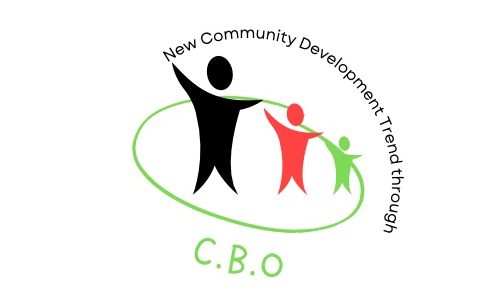Before we officially decided to establish a volunteer organization within the community organization framework, we already knew our purpose. However, we had many questions about the overall operational framework: what legal formalities we needed to fulfill, what was required to achieve our dream, and what conduct criteria we had to apply to create long-term solutions while also being a unique, active, and globally trusted organization.
The formation of community-based organizations (CBOs) has become a major trend in various parts of African countries. The number is particularly high in regions severely affected by imbalanced resource distribution, critical for daily survival, or by systems that fail to protect human rights and ensure the full operation of current measures.
A dormant system that fails to actively monitor and enforce measures fosters dependency and desperation within communities. CBOs vary in their functionality and structure: how and where they operate, their mission, vision, and target audience. They can also be distinguished by their short- and long-term expectations and goals.
To highlight one example: some CBOs specialize in advocating for girls’ rights. These organizations are typically established in regions where the system does not protect girls’ interests. Female genital mutilation, child marriages, and denial of access to education are some challenges faced by girls in barbaric and toxic patriarchal communities. It takes courage to navigate the strict boundaries set by perpetrators, who are sometimes protected due to their social influence, to break this injustice. Therefore, a community-driven force is required: people directly affected by the problem, aware of its impact on current and future generations, advocating for its dangers, and collectively finding solutions to bring about change.
The list of critical issues CBOs address is extensive, covering areas such as HEALTH, POVERTY, and NATURAL CALAMITIES. While many genuine community philanthropists have pure intentions, it is also realistic to admit that some individuals are selfish and use the idea for personal gain rather than for the benefit of the people they claim to serve. This leads to trust issues among potential partners, donors, and sponsors, especially when misconduct or mismanagement of resources is reported, raising questions during project evaluations.
The fundamental purpose of CBOs, however, is to be the voice of the voiceless or to amplify the voices weakened by the system. They should work hand in hand with other community stakeholders in conversations aimed at improving the quality of life for their target populations. They should create think tanks focused on practical, implementable, and sustainable long-term solutions. Additionally, they should collaborate with related organizations, both private and public, and with ministries to exchange ideas on better approaches for improving living conditions for the affected populations.
Unfortunately, some community-based organizations misuse the power and trust given to them for selfish purposes. In our next blog, we will discuss how to identify whether an organization is legitimate and highlight red flags to avoid when considering collaboration with one.

